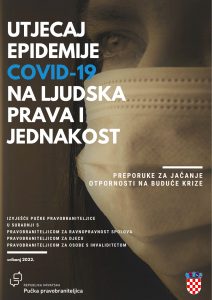El Defensor del Pueblo andaluz participa en el primer Congreso de la Alianza Global del Ombudsperson Local
Date of article: 17/05/2022
Daily News of: 17/05/2022
Country:  Spain
- Andalucía
Spain
- Andalucía
Author:
Article language: es
El Defensor del Pueblo andaluz, Jesús Maeztu, participa a partir de mañana en Madrid en el primer Congreso de AGOL (Alianza Global del Ombudsperson Local), bajo el título 'Prácticas Sostenibles: De lo Local a lo Global ', donde se reunen defensores y defensoras del pueblo de los países del área iberoamericana.
El encuentro, que se hace coincidir con el V Congreso Internacional del PRADPI (Programa Regional de Apoyo a las Defensorías del Pueblo de Iberoamérica), tiene como objetivo conocer, compartir y debatir sobre las prácticas sostenibles en el tiempo y replicables de las Defensorías del Pueblo, con el propósito en mejorar el trabajo de protección de los derechos humanos en las ciudades, el cumplimiento de la Agenda 2030 y los Objetivos de ONU-Habitat, así como establecer alianzas estratégicas para la consolidación de la Alianza Global de Ombudsperson Local.
El Defensor del Pueblo de España, Ángel Gabilondo, inaugurará el congreso de AGOL, que se desarrollará en el Centro de Estudios Políticos y Constitucionales de Madrid, del miércoles al viernes.
Jesús Maeztu intervendrá el jueves en la mesa redonda que abordará la temática de las 'Personas en situación de vulnerabilidad', donde compartirá espacio con Elías Manuel Camargo, presidente de la comisión de Derechos Humanos de la Baja California mexicana; Karen Morales, coordinadora de proyectos FENALPER de Colombia; Marcos Lindemayer, de la Unión OGU/CGU del Brasil; July Paola Ramírez, personera municipal de Sativasur (Colombia), la Síndica de Greuges del Ayuntamiento de Lleida, Dora Padial, y Joseana Beetzabé de la Rosa, secretaria técnica de la comisión estatal de Derechos Humanos de Chiapas.
AGOL es la Alianza Global del Ombudsperson Local, creada en mayo de 2019, que tiene por objeto trabajar en el ámbito de las administraciones locales con un enfoque basado en los derechos humanos con perspectiva de género y prestando especial atención a los retos socioambientales, con el fin principal de fortalecer los vínculos interinstitucionales y la cooperación internacional entre las instituciones y otros asociados. Todo ello para contribuir al Estado de Derecho, la democracia y la justicia social en todo el mundo.





